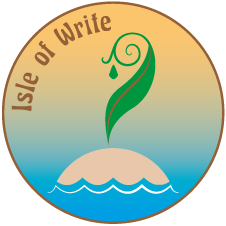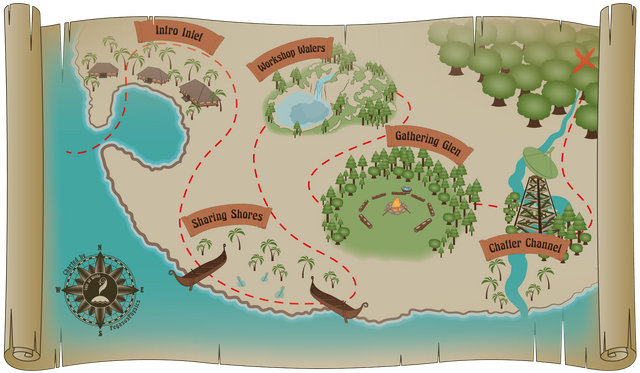Why do writers write? Why do readers read?
Nine years ago I joined an online fiction writing workshop. Some of the crits (critiques) from critters were helpful, but many were brutal. One of the more brutal, but comical, of the gang has since died, so I cannot ask his permission to post this.
His novel really was hilarious, and I gave it a good review, and I blogged about Barry here:

Why post Barry's scathing critique of an anonymous workshopper's manuscript? Because
He delivers some really good advice, but
It goes to show how a critique could be demoralizing, no matter how much truth may be in it. The guy could have found something good to say about the sub (submission). And he should have. He would use my subs as a platform for showing off his sense of humor. And yet, somehow (because he was an Aussie? Because he was old?) nobody, not even I, chastised him overly much.
Instead of trying to soften the blow, Barry wrote stuff like this:
---------------------- Information from the mail header -----------------------
Sender: A Certain Writing Workshop <-->
Poster: Barry
Subject: CRIT: (Title Deleted), Chap 3
Hello, (Author's Name Deleted). I'm Barry and I'll be your critter for the next few minutes
Now, I haven't read your previous chapters so if anything I say is negated by that work, just white out everything I say. (Yeah, it comes off the monitor with gasoline.)
Somethings I'm going to say are fundamental to writing, not just this piece, other things might be more specific.
- It may seem a silly question, Author, but why are you writing this? I'm surprised how many writers cannot answer that without some thought and may dismiss it altogether. There is more than the one obvious answer. Self
indulgence is one although it's put in more attractive terms. However, the one most write for is to communicate with another homo sapien sapien and ultimately gain their approval.
There have been known ingredients to achieve this but they all boil down to making the story so interesting, "I couldn't put the damn thing down!"
Conflict, tension, fright, rapture, there are more than one theme to get this interest, but conflict is at the heart of more than any other, I would imagine.
Now, I can see in this chapter that this is exactly what you're reaching for, but what I would ask you to consider -- and this has to be done as detached as you can be -- could you ramp it up more and how would you do that. I'd like to hear what you think.
- Do yourself a favour and go into your palatious library and pick up a book of fiction. Examine how it's laid out. Line by line, he says, new line, she says, new line. Unless you have no ambition to be published, you need to write the way and editor's eye would want to see it.
- If ever you're looking for something to do to improve your writing, here's something I swear will please you, after a hell of a lot of pain. Take a print out of some of your writing, say 1000 words of it, and start crossing out words you don't actually need, or word groups that can be replaced by a single, nore embracing word, all done without changing the meaning of the original. Be cruel. You will fight it. You will resist change like it means your life. Maybe even, you'll give up. Having done it, do a word count. It should be down significantly. Now, do it again. Look at every word. Is that sentence necessary at all? Does it advance the story? I have seen text some 50% smaller, but like soup reduction, the work is richer, brighter and almost invisible to the reader. It means a reader will just
read and not notice the reading except the pictures in their head.
Is that as clear as mud?
--Barry, author of Miss Alice Merriwether’s Long Lost Cakes & Further Arcane Inducements to Wonders
Kinder and Gentler Critiques are our specialty. Click on the icons below, meet us in Discord, and see for yourself:

art and flair courtesy of @PegasusPhysics

@PegasusPhysics
As a reader, I can say that each writer is unique in how they write. They have their own styles, some may go on and on about details of everything, some are direct to the point, and some are a mix of both. But people do enjoy all kinds of works. So essentially, trying to turn a writer whose work is actually liked for being detailed oriented into one that isn't, that's kind of like taking out part of who the author is? (This is just my POV though.)
Absolutely love this comment. I've read some fantasy work from Stephen R Donaldson (Chronicles of Thomas Covenant) that (especially in the earlier books from the late 70s) were so verbose and laden with thick words, I could barely plow through the first couple chapters. After a short while, though, I loved reading his style.
Dumbing that down to the 'lowest common denominator' style of writing would seem to be a tragedy.
Thanks :)
Yep, especially when you take a look at older sci-fi and high fantasy stuff, they seem to send you to sleep at the beginning. But when you get into the flow of things, they're fantastic.
So...what is YOUR take on the validity of that review/critique?
Me, I read a book because I want to read words. I want to see the pictures, imagine the people, look at the scenery, NOT JUST advance a storyline (or else I might as well read the official book review and call it good). All those unnecessary words are where a lot of the flavor and color are, the extra spices that make a thing taste good. You can cut all those spices out, and the food is still recognizable as food, but I don't think it's as rich.
But that's just me.
Neg, you're talking to a fan of Henry James (master of intricate detail) and Dosteoevsky.
I think it boils down to voice. If one speaks with her/his own authentic voice, then there are those words that are needed and most of them can't be crossed out.